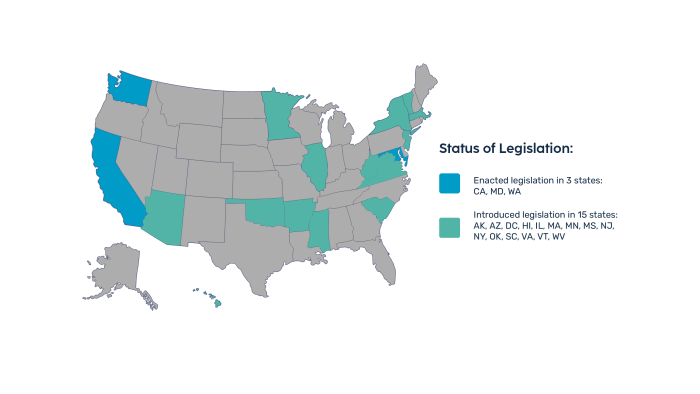
New report shows more U.S. states adopting legislation to ensure youth have early access to counsel
Closing the Gap, a new report by Fair Trials and research partner, NORC at the University of Chicago, shows that states across the U.S. are adopting a range of legislation to ensure that youth have early access to counsel if they are accused of a crime.
The U.S. is an outlier when it comes to allowing children to be interrogated without a lawyer present. In addition, in all but few states, police are permitted to use discredited practices, such as deception during interrogations – practices which are outlawed in other democracies. The lack of legal representation and use of coercive practices is particularly harmful for children and has resulted in false confessions with devastating consequences.
This new Fair Trials’ report outlines the recent wave of legislation being enacted to ensure that children have access to counsel after arrest and prior to interrogation. Such legislation not only supports youth in exercising their rights, including their right to remain silent, but can also help to mitigate coercive practices by police and to improve communication channels among police, youth, their families, prosecutors, and defense lawyers in ways that can support public safety and community trust.
“Police contact can be coercive and intimidating for anyone but is particularly overwhelming for children. Fair Trials welcomes that many states are starting to ensure that protections are in place to protect young people’s rights.
Seventeen states have pursued legislation directed at providing early access to counsel for youth; thirteen of those states have introduced legislation and four states have passed legislation: California (SB 395 and SB 203), Washington (H 1140), Virginia (HB 746) and Maryland (SB 53).
Legislation to protect youth in custody varies from state to state, but some key features include: ensuring that parents are notified when their children are arrested; allowing accused children to communicate with their families; advising of rights in an age-appropriate way; consultations with attorneys; and a ban on waiving attorney consultations.
“Ensuring children have access to counsel when they are arrested can not only provide oversight over arrest, custody, and detention in individual cases, it can also transform the wider criminal legal system, disrupting coercive police practices, criminalization, and mass incarceration.”
Read the report here.


